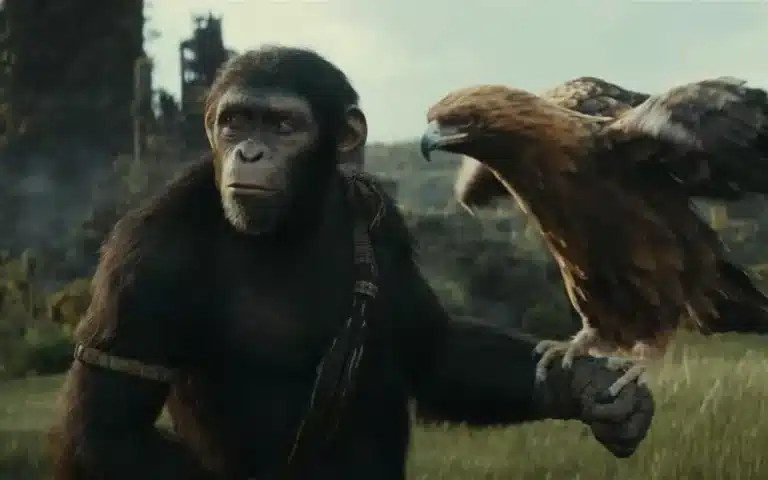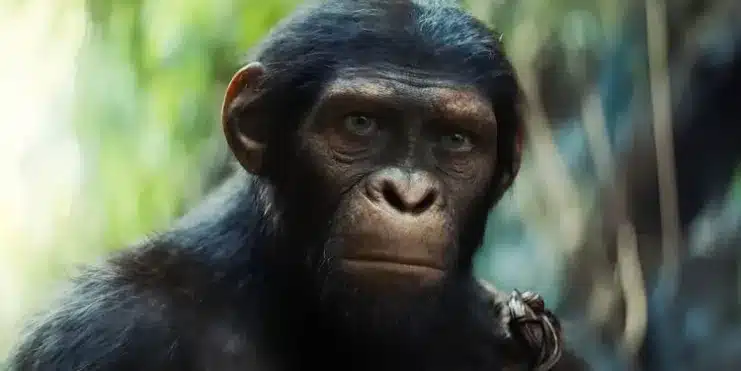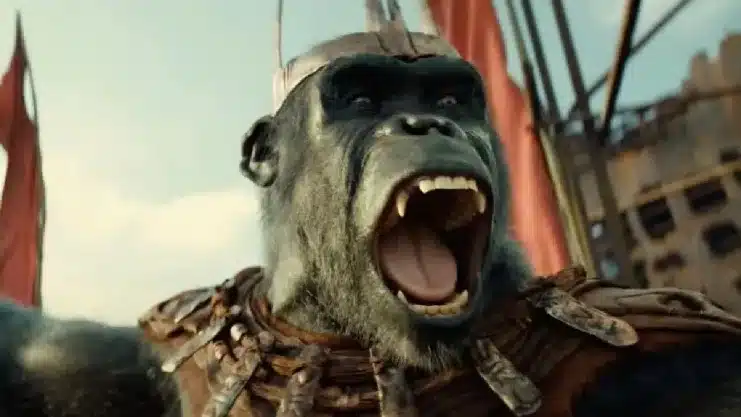
“Kingdom of the Planet of the Apes” promises a thrilling ride through jungles and abandoned buildings reminiscent of this 21st century classic.
Wes Ball, the director of the long-awaited “Kingdom of the Planet of the Apes” film, takes us into a narrative that promises to revolutionize the franchise. Inspired by Mel Gibson’s “Apocalypto,” he crafts a story that combines the intensity of a journey through the Mayan jungle with the cunning and emotional depth of the apes. This special presentation opens a new chapter in the saga, which takes place 300 years after “War for the Planet of the Apes”.
Inspiration behind the scenes.
Ball’s creative spark was sparked after he contemplated the symbiosis between “Apocalypto” and the Ape universe. In an exclusive interview with Empire magazine, the director shared how he tackled this parallel flood of ideas. Continuing Matt Reeves’ career, the film introduces us to a character other than Caesar, the charismatic ape leader played by Andy Serkis in previous films.

The film’s producer Joe Hartwick highlights the change in tone compared to the previous installments. While Reeves’ films are known for their emotional intensity and drama, “Planet of the Apes” opted for a lighter, more dynamic adventure. The main character, Noah, discovers the outside world for the first time, giving us a new perspective full of wonder.
Visual effects supervisor Eric Winquist revealed that the film will feature some spectacular sequences, including a sea of apes. The complexity of these effects, especially for the treatment of wet hair, greatly benefits from the experiences and technologies obtained in the recent “Avatar 2: Waterway” project.
Keeping the essence without Disneyficating
Although the year Despite being the tenth film in the saga, which included Tim Burton’s 2001 remake, this installment promises to stay true to its roots. Ball, who directed the “Maze Runner” trilogy, brings his touch of adventure to lightness and plot without softening it.


The plot of “Kingdom of the Planet of the Apes” invites us to go on a journey of self-discovery and confrontation with the past of a young ape. Their decisions will not only shape their fate, but also determine the future of apes and humans. The film is scheduled to release on May 24, 2024, marking the next milestone in the evolution of this iconic franchise.
Evolution of the Planet of the Apes
The “Planet of the Apes” saga is a cornerstone of science fiction in cinema, marking a before and after in narrative and special effects. A 1968 epic film starring Charlton Heston based on the novel by Pierre Bull, it introduced a dystopia where apes rule and humans rule. This film was noted for its creative make-up and a plot full of social and political criticism.
In the year In 2001, Tim Burton revived the franchise with his version, bringing more advanced visual effects and a darker interpretation. However, it was the reboot in 2011, starting with “Rise of the Planet of the Apes”, where the saga found new life. Starring Andy Serkis as Caesar, these films used motion capture to create realistic apes, a technical feat that presented a visual story.
With “Government of the Planet of the Apes,” he promises to continue the evolution of the franchise, mixing elements of an “apocalypto”-style adventure with deep character exploration. The saga, over the years, has maintained its cultural relevance by reflecting on topics such as artificial intelligence, animal ethics and social conflict, always enthralling audiences with its dramatic visuals and complex narratives.
